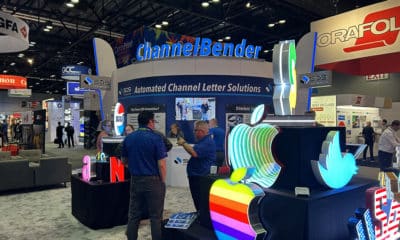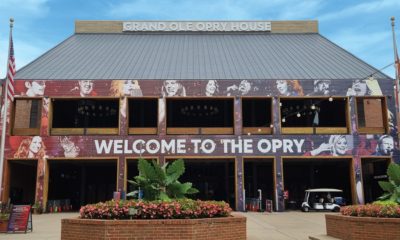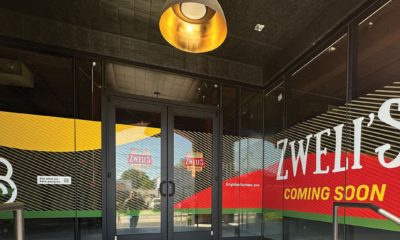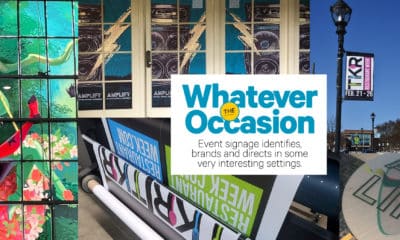PASSERSBY CRUISING BISCAYNE Boulevard in Miami, FL’s low-key MiMo district last spring were enticed to look past the Knoxton Motel’s restored 1950’s sign icon to something a bit more thought-provoking. At street level, the unassuming neutral facade of bespoke fashion agency Skep360 was showing off vivid Latin American pop art influences as part of a MUSA exhibition.
Fashion designer and artist Anabella Bergero conceptualized the high-impact, site-specific window installation — exploring the Latinx visual universe and gender identity while weaving in layers of religious iconography and Latin American pop art — as part of her overarching “Constructing Identities” project.

The clear PET film is PVC-free and 100% recyclable, while the printer uses low-VOC, GREENGUARD Gold-certified, UV-LED inks.
The piece was printed in collaboration with Mimaki USA’s wide-format division using the manufacturer’s UCJV300-160 UV LED roll-to-roll, print-and-cut model. The goal was to achieve an effect that would be vibrant and visible from both sides of the gallery’s glass windows and doors. Beyond that, the result needed to play up light from both outside and inside viewpoints while maintaining a veil of intrigue, encouraging potential visitors to enter the space and view more works from emerging artists.
To shed just enough light on the meaningful design, the Mimaki team chose Drytac VizPrint Impress Clear, a PVC-free, 100% recyclable, optically clear PET film for self-adhesive applications. Mimaki Print Solution Supervisor Ernest Contreras said the film allowed outdoor light to flood in by day, and indoor light to transform the surrounding area with a backlit effect after dark.
Ease of installation and removal was also paramount, as the windows needed to be left clean following the exhibit, Contreras added in a case study recently released by Drytac. The VizPrint material can be removed without residue up to three years after installation, making it suitable for a temporary application like this one.
In the same release, Bergero said the window work served as a public art display. The combination of colors, composition and digital print techniques created what she describes as a fascinating conversation between the building’s interior and exterior, one that could be experienced by both gallery spectators and nearby pedestrians.

Forget stained glass. Installed last spring, this printed mural was designed to leverage lighting from both inside and outside the venue.
One element of the artwork draws influence from “La Aparición,” an apparition of the Virgin Mary and a symbol of Catholic devotion that Bergero’s grandmother told her about as a child. “It was my biggest fear to have an apparition,” the artist wrote in an Instagram post reflecting on the Miami mural last March. “… It has been recently that this memory came to my mind, after spending some years printing Virgenes — in a joyful Latinx Pop Art aesthetic — all across fabrics, walls and windows. I have been bringing my own ‘apariciones’ to spaces.”
The brainchild of a three-year process — including research in Argentina, Mexico and New York’s Latin American community — Bergero’s curation and creation of “Constructing Identities” was awarded the SUNY PACC Prize. In addition to the MUSA window installation in Miami, her work on the project has been showcased at the Argentine Consulate and the Art and Design Gallery at the Fashion Institute of Technology in New York.
 Anabella Bergero alongside the site-specific window installation at Skep360.
Anabella Bergero alongside the site-specific window installation at Skep360.

 Tip Sheet1 week ago
Tip Sheet1 week ago
 Photo Gallery3 days ago
Photo Gallery3 days ago
 Ask Signs of the Times5 days ago
Ask Signs of the Times5 days ago
 Real Deal2 weeks ago
Real Deal2 weeks ago
 Benchmarks1 week ago
Benchmarks1 week ago
 Photo Gallery8 hours ago
Photo Gallery8 hours ago
 Women in Signs2 weeks ago
Women in Signs2 weeks ago
 Women in Signs1 week ago
Women in Signs1 week ago















